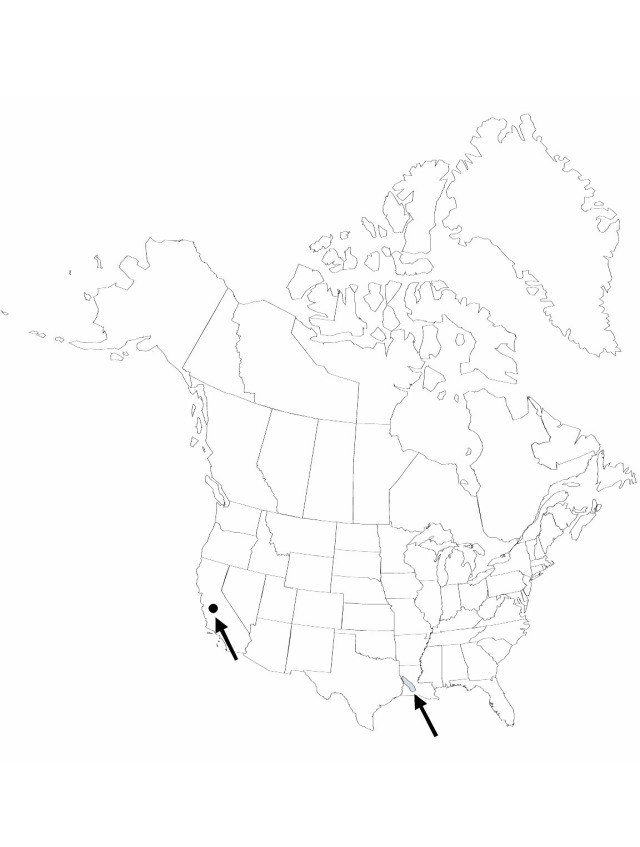Eriocaulon cinereum
Prodr. 254. 1810.
Herbs, annual or short-lived perennial, 15–30 cm. Leaves linear-attenuate, to 10 cm, apex subulate-filiform. Inflorescences: scape sheaths shorter than principal leaves, loose; scapes filiform, 0.5 mm wide, 6–8-ribbed; mature head silvery-gray, ovoid to nearly globose, 4–5 mm wide, soft; receptacle sparsely pilose, hairs translucent; involucral bracts spreading-ascending, not obscured by bracteoles and flowers of mature heads, pale, ovate to oblong, oblanceolate or broadly obovate, grading narrower inward, 2 mm, margins often lacerate or erose, apex acute, glabrous; receptacular bracts pale except for gray midzone, linear-oblong, 2 mm, margins erose or entire, apex acute, glabrous. Staminate flowers: sepals 3, dark, either deeply and narrowly lobed or broadly spatulate, 3-dentate, 1.5 mm, distally with scattered white, linear, short hairs; androphore flaring; petals 3, oblong, apex with white, tapering hairs; stamens 6; anthers yellow. Pistillate flowers: sepals 3, 2 linear-elliptic, 1 broadly elliptic-oblanceolate, concave, 1.5 mm, apex acute, sometimes with few translucent hairs; gynophore 1 mm with 3 spreading, peglike, minute appendages; pistil 3-carpellate. Seeds pale brown, ovoid or broadly ellipsoid, 4.5 mm, finely reticulate, alveolae horizontally rectangular.
Phenology: Flowering summer–fall.
Habitat: Muck of rice fields
Elevation: 0–200 m
Distribution

Introduced; Calif., La., Europe (Italy), S.E., e Asia, Australia.
Discussion
Selected References
None.